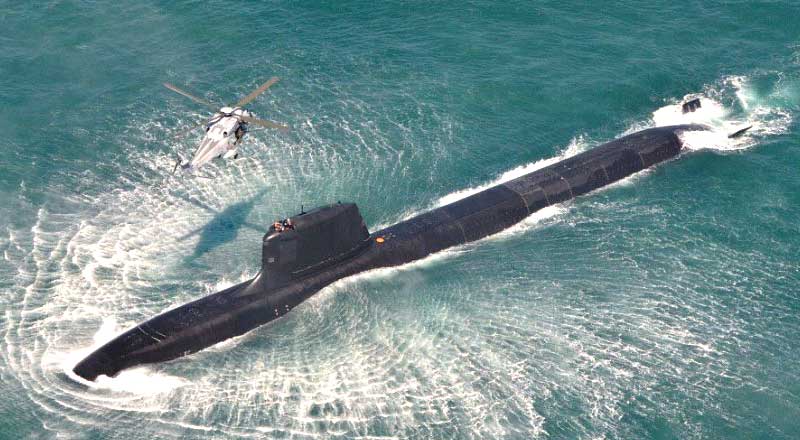SOURCE: RAUNAK KUNDE / NEWS BEAT / IDRW.ORG


India and France are set to discuss potential collaboration in the development of nuclear attack submarines during Indian Prime Minister Narendra Modi’s upcoming visit to France as the chief guest for the Bastille Day parade. This meeting holds significant importance as it aims to foster cooperation and strengthen the strategic partnership between the two nations.
Earlier in 2023, France had extended an offer to jointly develop nuclear attack submarines (SSNs) with India as part of its atmanirbharta (self-reliance) initiative. This collaboration would involve the transfer of technology based on France’s advanced Barracuda-class SSNs, with the Naval Group, responsible for developing the Scorpene boats, leading the project. The first of the Barracuda-class SSNs, Suffren, was commissioned into the French Navy in mid-2022. France plans to commission a total of six SSNs by 2030, each costing over $2 billion.
France sees this potential deal with India as an opportunity to compensate for Australia’s decision to cancel Naval Design’s tender to supply the Royal Australian Navy with 12 conventional diesel-electric Attack-class submarines worth over $60 billion. Instead, Australia entered into a trilateral pact known as AUKUS with the United States and the United Kingdom, securing the purchase of eight SSNs for $368 billion. In light of this development, France is keen to collaborate with India on nuclear submarine technology.
India, too, is open to such cooperation with France as it seeks alternatives to ensure progress in its nuclear submarine program. Continued Russian assistance in this domain is uncertain due to extensive punitive sanctions imposed on Moscow following its invasion of Ukraine. Collaborating with France would provide India with a reliable partner and access to advanced nuclear submarine technology.
France has expressed its willingness to partner with India’s Defense Research and Development Organisation, the Department of Atomic Energy, the Indian Navy, and related organizations to locally build six SSNs. This collaboration would align with India’s goals of enhancing self-sufficiency and indigenization in defense manufacturing.
India’s SSN project was initially approved by the government in early 2015, with the aim of completing the first 6,000-tonne submarines by 2032-33. Partnering with France would accelerate this timeline and provide India with the necessary expertise and technology to develop a formidable nuclear submarine fleet.
NOTE : Article cannot be reproduced without written permission of idrw.org in any form even for YouTube Videos to avoid Copy right strikes